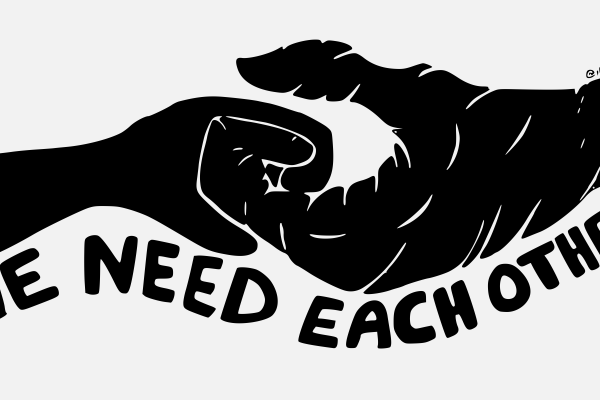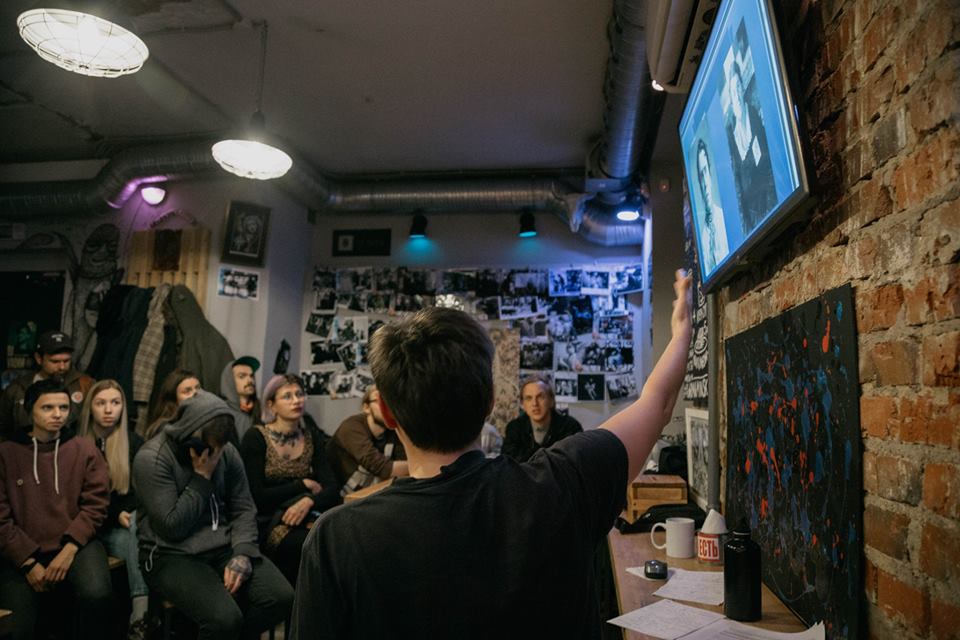Almost 2 years after the collapse of Operation Solidarity and the formation of the Solidarity Collectives, we decided to take a closer look at the story of the disappearance of the money and put a stop to this conversation. The reason for writing this article was the repeated discussions of the members of our collective about this story and the lack of a full description of the situation in the network for those who did not follow the organization at the time of its split.
For reference: Operation Solidarity was a collective of anarchists and anti-fascists engaged in organizing solidarity with Ukrainian anarchists and anti-authoritarians after the beginning of Russia’s full-scale invasion of Ukraine. Lasted until May-June 2022. Re-formed into the organization “Solidarity Collectives”.
To create this text, we spoke to several comrades in and outside of Ukraine, including some comrades from Belarus, who were involved in solidarity organizing in the first months after the start of the full-scale invasion of Ukraine. We cannot provide the identity of our sources for security reasons, but after several conversations with different activists we have no doubt about the facts confirmed by different sources.
We have come across the well-known activist Salem several times over these two years on the internet and understand his position on the situation, so we did not feel it necessary to further question him or his associates on the situation. In addition, as far as we know, Salem and his circles have written a text in several languages, in which they express their understanding of what happened in detail (https://telegra.ph/Publichnyj-otvet-Operation-Solidarity-07-26).
What happened?
After several months of active work, Operation Solidarity collapsed. From the old collective a new organization “Solidarity Collectives” was formed, which has been engaged since summer – autumn 2022 in organizing support for comrades at war and humanitarian aid (the organization has several other directions).
Given the extremely difficult work situation of the activists of Operation Solidarity, including the constant threat of death and violence from the occupying forces, we can understand the conflicts that arise in the collectives. The creation of new collectives in a war atmosphere is extremely difficult, and in some situations impossible.
During the formation of the collective, one of its members, Salem, took the initiative to create the financial and media infrastructure. Once everything was in place, access to the infrastructure was not shared with the rest of the collective. Several months later, when the collective members asked to share responsibilities, Salem and several others refused to transfer access and blocked further use of the collective funds.
As a result, for more than a month, access to the collective’s accounts was inaccessible to the collective itself, media resources were blocked, and Salem refused to hand over the collective money back to the general treasury. Salem cited several reasons for this approach, none of which justify such behavior.
The conflict from Operation Solidarity spilled out of Ukraine rather quickly. It was abroad that Salem tried to find “allies” to fight the majority of the collective. As far as we know, Salem and his friends were not able to find such people initially, so the blocking of the money continued.
Depending on the week of the conflict, Salem offered to “return” from 50% to 80% of the total cash and keep the rest of the money for his projects. Alternatively, the Operation Solidarity collective offered Salem to write a formal proposal of what he planned to use the money for and the total budget for it, plus transfer access to media resources to a third party, which salem refused.
After almost a month and a half of conflict and frozen collective resources, the comrades organized in the already collapsing anti-authoritarian platoon met with Salem in person and were able to negotiate the return of most of the collective resources. At the same time, Salem himself was left with a substantial amount of money in the amount of about 20,000 euros. The money was handed over without any agreement on the media resources that remained in Salem’s hands or any accountability for the use of the money. This compromise led to the re-establishment of Operation Solidarity, but the collective decided to close the group and form the Solidarity Collectives as a separate initiative, unrelated to Salem and his associates.
After receiving the amount, Salem and his friends indicated in a statement on July 26 that they had received 1/4 of the cash register as per their offer. The former activists themselves do not deny that their offer was not accepted (as the same statement says that just a few days after the “sharing” of the money, current members of the Solidarity Collectives issued them an ultimatum demanding that they return all the funds and transfer access to media resources to third parties).
It is difficult to say where the 20,000 euros allocated to Salem were used, but at least part of the money was used for household needs directly by Salem and his friends. Salem and his friends do not keep any open records on the money they have misappropriated (at least we could not find any)
In his statement, Salem points to the fact that the organization’s resources have been misused and diverted by people from the current Solidarity Collective. We have not been able to find anyone to corroborate this statement. Since the formation of the Solidarity Collectives, no one else has made this type of accusation against the collective.
Conclusions:
After analyzing everything that has happened, we believe that:
- Being in a privileged situation, Salem and his friends purposefully appropriated[1] collective resources to develop their own projects outside the collective to which these resources were originally entrusted.
- Salem and his friends actively blocked the solidarity structure from working in their personal interests to develop abstract projects.
- Salem and his friends appropriated the media resources of Operation Solidarity to publish factual misinformation.
We therefore recommend that organized anarchist groups avoid any collaboration with Salem and others in his circle who participated in the theft of collective resources. Two years later, we have not found any evidence of remorse and acceptance of responsibility by Salem and his circle for the crisis. Moreover, Salem continues to try to use social media and general communication channels to discredit Solidarity Collectives and spread deliberately false information.
We understand the reputational risks that publishing this analysis and conclusions may bring us, but we believe it is necessary to introduce accountability within the anarchist movement for misconduct. Especially on this scale.
We realize that the facts in this text may be used by government agencies to prosecute Salem and his friends, but we do not believe it is necessary to protect the interests of such individuals given that they continue to attempt to damage the anarchist movement.
For additional comments and questions, feel free to email us at pramen@riseup.net
Anarchists from the Pramen
1: Some anarchists accuse Salem of stealing collective resources, while Salem and his friends deny theft. According to the legal definition, there really was no theft – theft is covert stealing, while they took the money in open.




